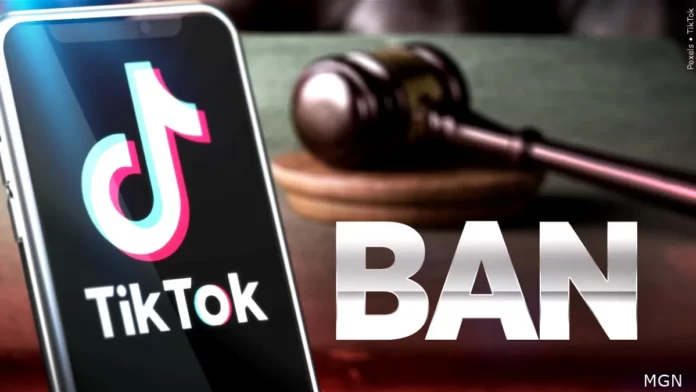In a move echoing India’s decisive action against Chinese-owned apps, the United States House of Representatives recently passed a bill with the potential to enact a nationwide ban on TikTok. The decision underscores growing concerns over data privacy and national security, aligning with global sentiments towards reining in the influence of Chinese tech giants. With this bill’s passage, the US appears to be following in India’s footsteps, signaling a concerted effort to safeguard sensitive user data and mitigate geopolitical risks.
The bill, titled the “Protecting Americans’ Data from Foreign Surveillance Act,” gained significant bipartisan support, reflecting the widespread apprehension regarding the handling of user data by foreign-owned platforms. The proposed legislation specifically targets apps developed or owned by companies operating in countries deemed as adversarial to American interests, with China prominently featuring in this category due to its contentious relationship with the US.
At the heart of the matter lies the apprehension surrounding TikTok’s data collection practices and its potential exploitation by the Chinese government for surveillance and influence operations. Such concerns have been reiterated by security experts and lawmakers alike, who argue that the app’s expansive user base provides ample opportunities for data harvesting, raising red flags regarding user privacy and national security.
The parallels drawn between the US and India regarding TikTok’s fate are striking. India, in 2020, made headlines by banning TikTok and several other Chinese apps amid rising tensions between the two countries. The move was portrayed as a response to security concerns, with Indian authorities citing the need to safeguard the country’s sovereignty and protect the privacy of its citizens. By echoing India’s stance, the US House of Representatives sends a clear message about its intent to address similar challenges within its own borders.
The bill’s passage comes amidst escalating tensions between the US and China on various fronts, including trade, technology, and geopolitical influence. TikTok, as one of China’s most successful exports in the digital realm, has found itself at the center of this geopolitical tug-of-war, facing scrutiny and regulatory hurdles in multiple countries. The proposed ban reflects a broader strategy aimed at curtailing China’s technological reach and reducing its influence on global digital ecosystems.
While proponents of the bill argue that it is a necessary step to protect national security and safeguard user privacy, critics warn against the potential ramifications of such a ban. They highlight the implications for free speech and the open internet, cautioning against overreaching regulations that could stifle innovation and limit access to popular platforms. Moreover, questions linger about the effectiveness of a ban in addressing the underlying security concerns, with some experts advocating for more nuanced approaches to data protection and cybersecurity.
The passage of the bill in the House of Representatives marks a significant milestone in the ongoing debate surrounding TikTok’s presence in the US market. However, its ultimate fate remains uncertain, as it now moves to the Senate for further deliberation and potential amendments. The outcome of this legislative process will not only impact TikTok but also set a precedent for how the US government deals with emerging threats posed by foreign-owned tech platforms.
Regardless of the bill’s final outcome, its introduction and passage underscore the growing consensus among lawmakers regarding the need to address the risks associated with foreign-controlled apps and platforms. The debate transcends TikTok alone, encompassing broader concerns about data privacy, cybersecurity, and national sovereignty in an increasingly interconnected world. As governments around the globe grapple with these complex issues, the regulation of tech giants and the protection of user data will continue to be at the forefront of policy discussions.
However, the passage of the bill by the US House of Representatives reflects a significant development in the ongoing saga surrounding TikTok’s presence in the country. Drawing inspiration from India’s decisive action, lawmakers are taking steps to address security and privacy concerns associated with foreign-owned apps. However, the debate is far from over, and the final outcome will likely shape the future of digital governance and international relations in the years to come.

